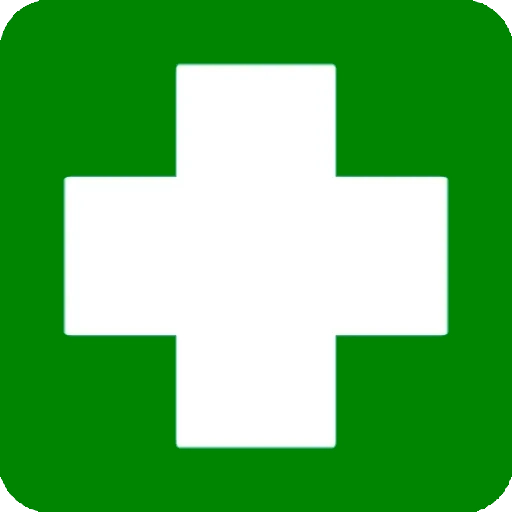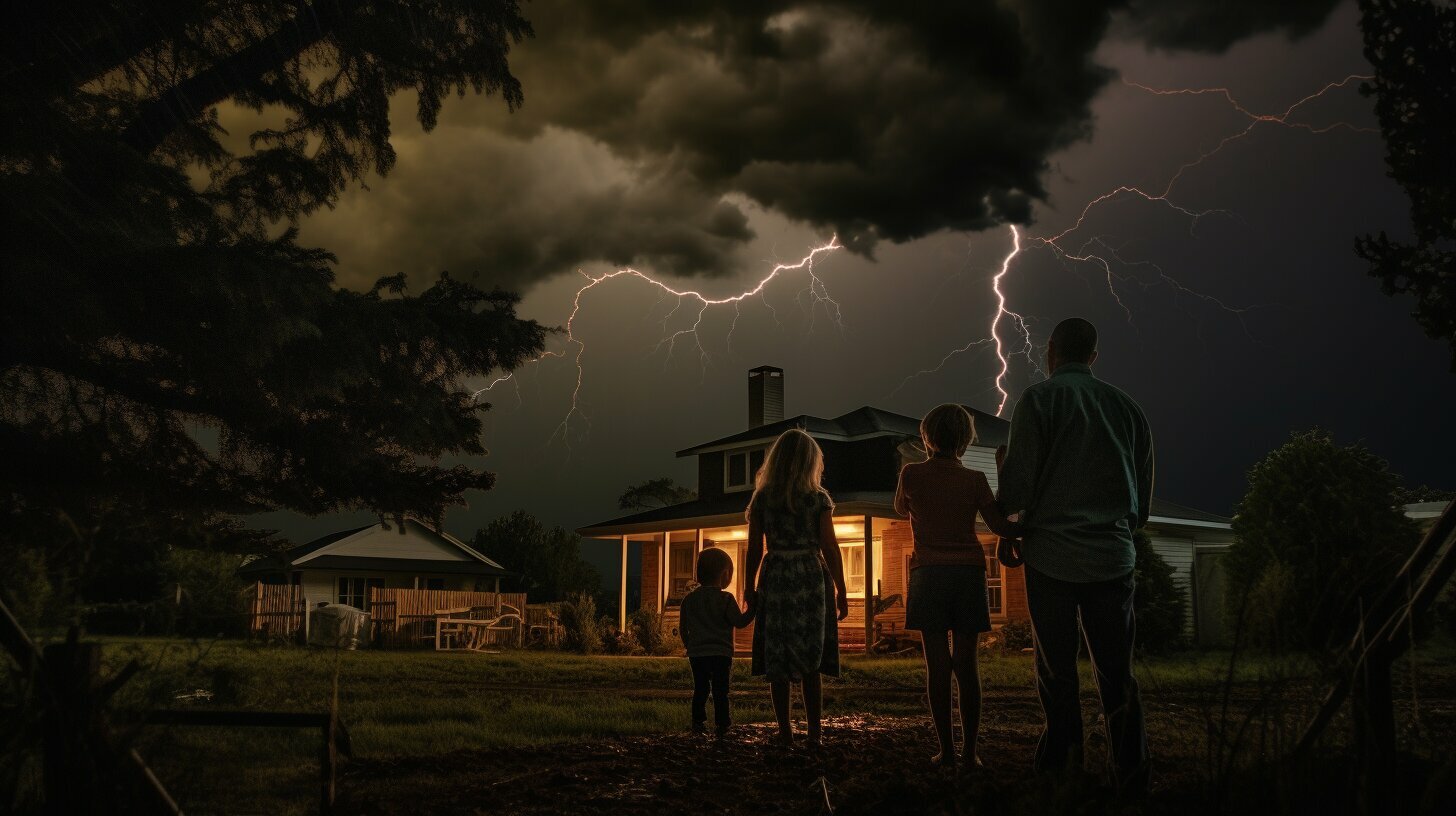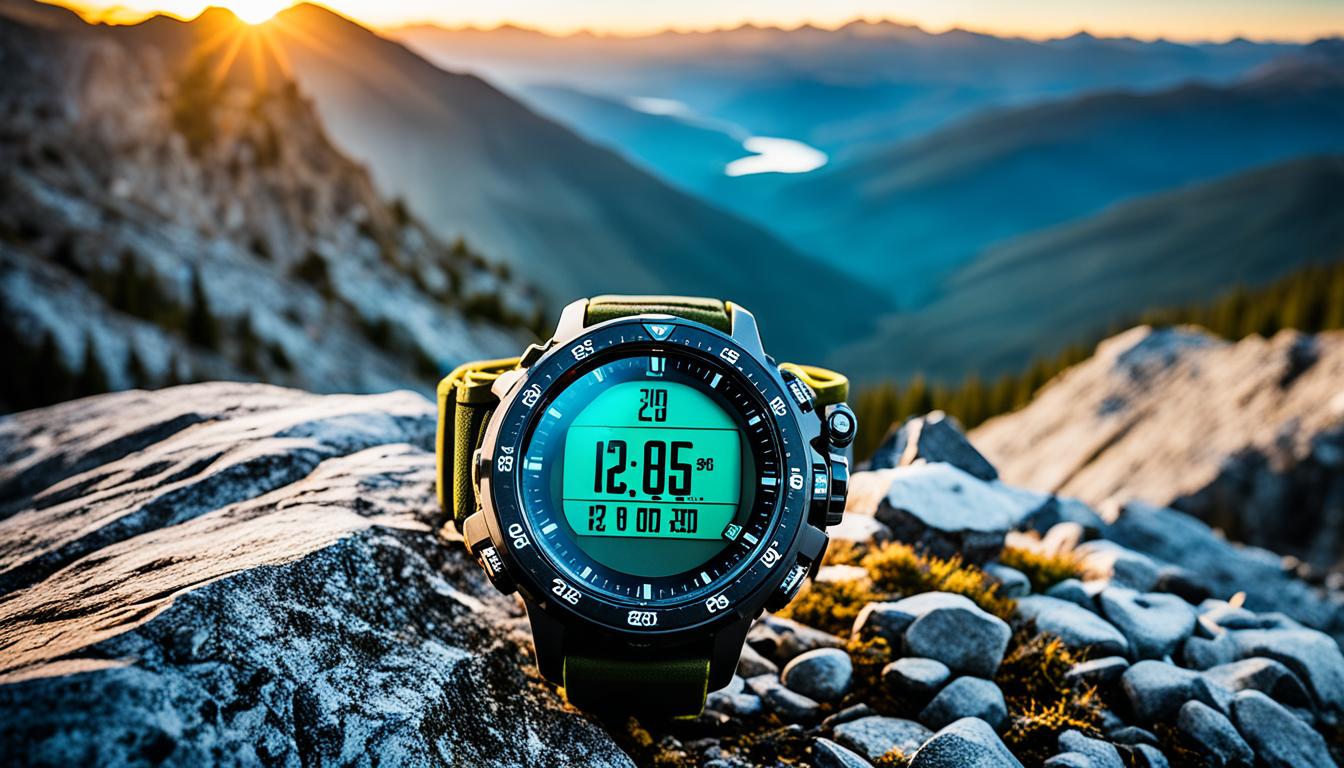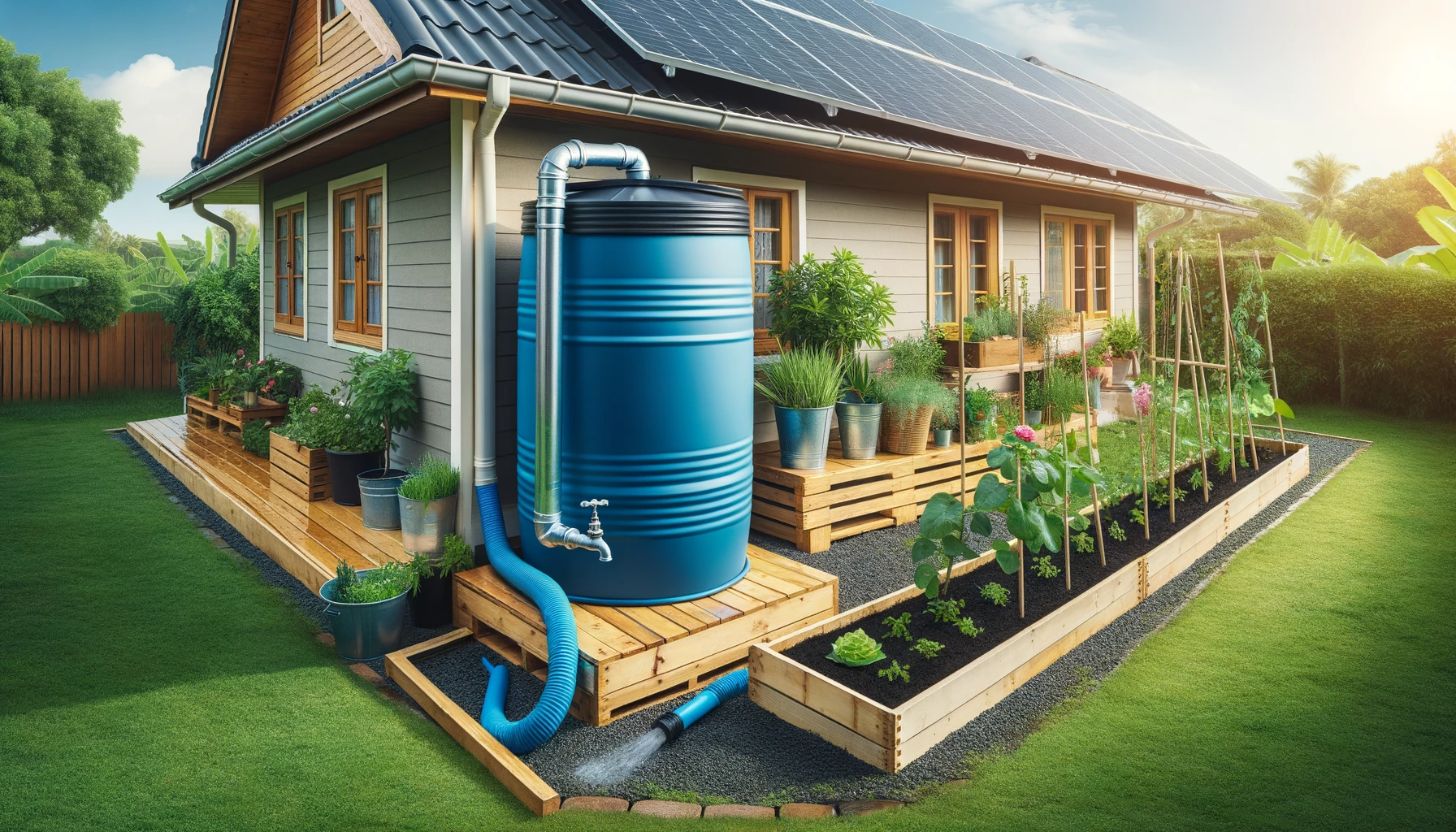Emergencies can happen at any time, and it’s essential to be prepared for the unexpected. Whether it’s a natural disaster, power outage, or other crisis, having a plan in place can make all the difference. Prepping for emergencies involves taking steps to ensure your safety and well-being in the event of a disaster.
In this section, we will provide you with essential tips on how to prepare for emergencies, so you can stay safe and secure no matter what happens.
Key Takeaways
- Being prepared for emergencies is crucial to your safety and well-being.
- Prepping for emergencies involves creating a plan and having the necessary supplies.
- Having a comprehensive emergency plan can alleviate stress and confusion during a crisis.
- Building an emergency kit and stocking up on food and water are essential steps in emergency preparedness.
Understanding the Importance of Emergency Preparedness
Disasters can strike at any time, and being prepared can mean the difference between life and death. Disaster readiness and emergency preparedness tips can help you navigate through unexpected situations with confidence and security. In times of crisis, knowing what steps to take can help you stay calm and focused, and potentially save lives.
Whether it’s a natural disaster like a hurricane or earthquake, or a man-made crisis like a terrorist attack, being prepared can help you minimize the impact of the disaster and increase your chances of survival.
Disclosure: When you buy through links on our site, we may earn an affiliate commission.
So, what can you do to be prepared for emergencies? The answer lies in having an emergency preparedness plan in place. This plan should cover everything from communication strategies to evacuation routes, and should be tailored to your specific needs and circumstances.
Another vital aspect of emergency preparedness is building an emergency kit. This kit should contain essential items like first aid supplies, non-perishable food, water, flashlights, and batteries. Stocking up on emergency food and water is also crucial, as it can help sustain you and your family in case of prolonged emergency situations.
Developing basic survival skills can also prove invaluable during emergencies. Skills like first aid, self-defense, fire-starting, and navigation can help you stay safe and secure, even in challenging situations.
In addition, preparing bug out bags for each member of your household can help ensure everyone has the supplies and information they need to stay safe and secure in case of an emergency.
To safeguard your home, you should take measures to protect it from potential disasters. This could include securing windows and doors, reinforcing structures, and installing smoke and carbon monoxide detectors.
By understanding the importance of emergency preparedness and taking steps to be prepared, you can help protect yourself, your family, and your community from the impact of disasters.
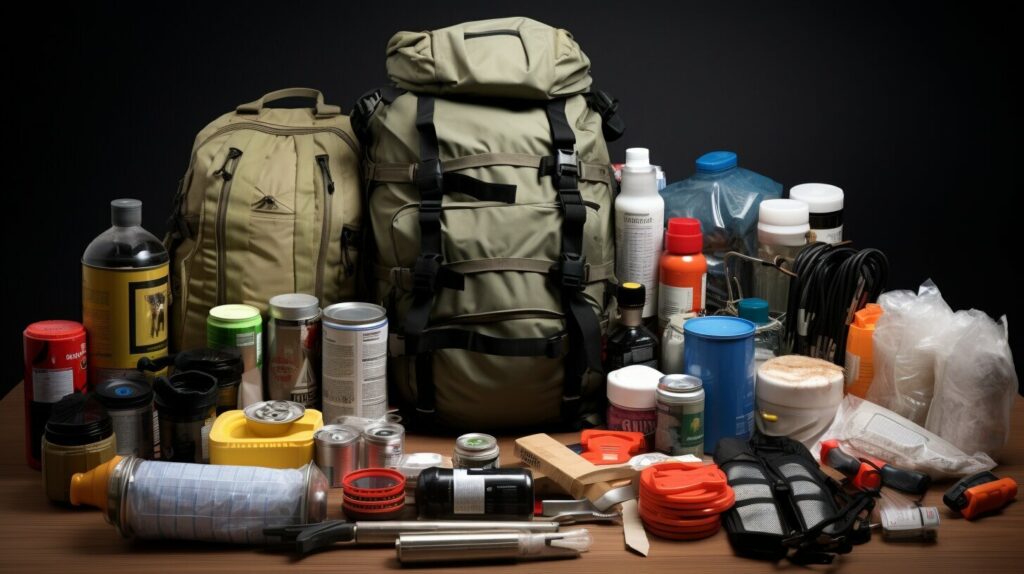
Creating an Emergency Plan
One of the most important aspects of emergency preparedness is to have a comprehensive emergency plan in place. An emergency plan will ensure that you and your family are on the same page when it comes to responding to unexpected situations. Here are some tips to help you create an effective emergency plan:
- Identify potential risks: Make a list of potential emergencies that could happen in your area such as hurricanes, floods, and fires.
- Communication: Designate an out-of-state contact person that all members of the household can communicate with in case local communication channels are down. Ensure that all members of the household have a copy of this person’s contact information.
- Evacuation routes: Identify several evacuation routes in case the primary one is inaccessible. Practice these routes with your family.
- Designated meeting points: Decide on several designated meeting points such as a public park or a friend’s house in case your home is inaccessible.
- Special needs: Take into consideration any specific needs of members of your household such as medical conditions, medication, or disabilities that need to be taken care of during emergencies.
After creating your emergency plan, make sure you discuss it with all members of the household and practice it regularly. Review and update it annually or as needed.
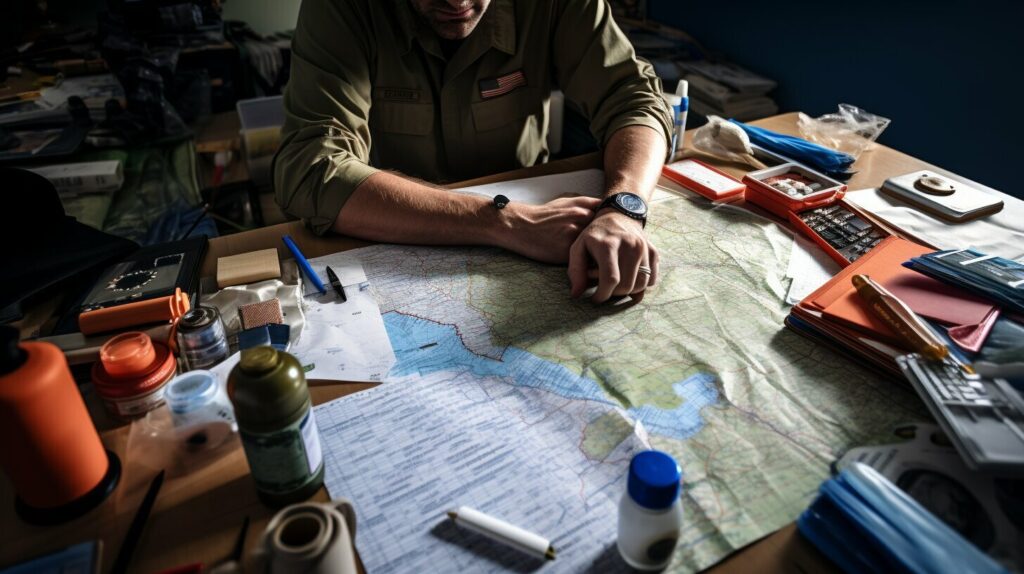
Building an Emergency Kit
When it comes to emergency preparedness, having a well-stocked emergency kit is crucial. Your kit should contain enough supplies to sustain you and your family for at least 72 hours. Here are some essential items to include in your emergency kit:
- Water: One gallon of water per person per day for at least three days. Don’t forget to add an extra supply for your pets.
- Food: Non-perishable food items such as canned goods, energy bars, and dried fruits. It’s also wise to include a manual can opener.
- First aid supplies: A well-stocked first aid kit, including prescription medications, eyeglasses, and contact lens solution.
- Radio: A battery-operated or hand-crank radio and extra batteries to get alerts on weather and emergency messages.
- Flashlight: A flashlight with extra batteries to help navigate in the dark.
- Whistle: A whistle to signal for help.
- Emergency contacts: A list of emergency phone numbers, including family members, healthcare providers, and emergency services.
- Personal hygiene items: Items such as toilet paper, moist towelettes, and hand sanitizer.
- Clothing and blankets: A change of clothes and blankets to keep warm.
- Cash: Cash and important documents such as driver’s licenses, passports, and insurance policies.
- Emergency tools: Tools such as wrenches, pliers, and a utility knife can be useful in a variety of emergency situations.
It’s important to store your emergency kit in a place that is easily accessible and known to all members of your household. Additionally, you should periodically check and update your kit to ensure that all items are in good condition and have not expired.
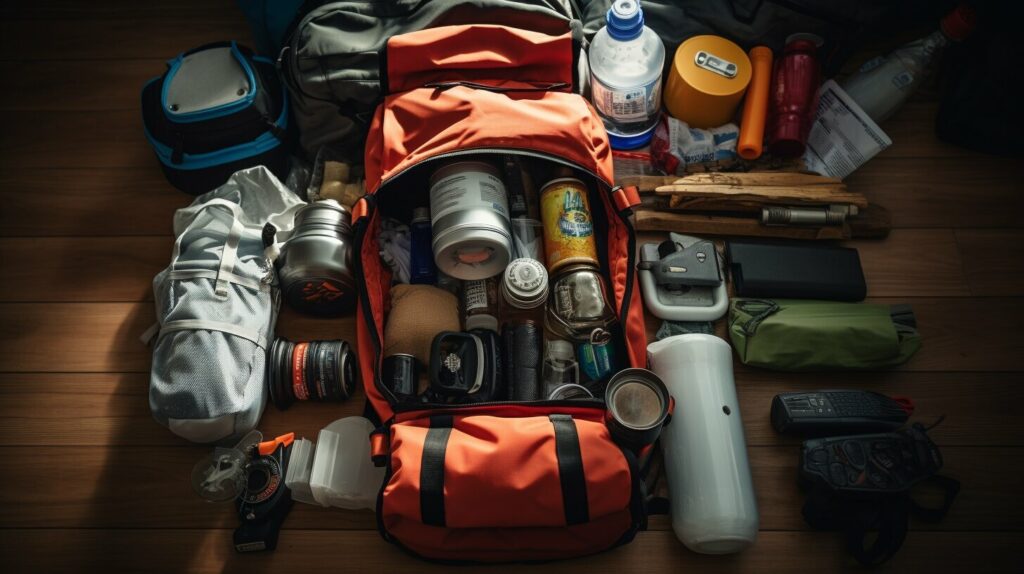
Having an emergency kit can provide you peace of mind in times of crisis. Keep this list in mind when building your kit and make sure your kit is ready to go in case of any emergencies.
Stocking up on Emergency Food and Water
During emergencies, access to food and water may be limited, making it crucial to have an ample supply stored in advance. Here are some tips to keep in mind when stocking up:
- Choose non-perishable food items: Opt for canned goods, dried fruits, and granola bars that have a longer shelf life.
- Store food properly: Keep your emergency food supply in a cool, dry place away from direct sunlight and heat sources. Use airtight containers to prevent spoilage.
- Rotate food supplies: Regularly check expiration dates and consume and replace soon-to-expire items in your emergency food supply.
- Have a water storage plan: Keep at least one gallon of water per person per day for at least three days. Consider investing in a water filtration system or water treatment tablets in case your supply runs out.
- Stock up on essential equipment: Have a manual can opener, portable stove, and cooking utensils on hand to prepare food during emergencies.
Being prepared with a well-stocked emergency food and water supply can save you and your family from potential risks. Make sure to regularly check and update your supplies to ensure they are fresh and ready to use when needed.
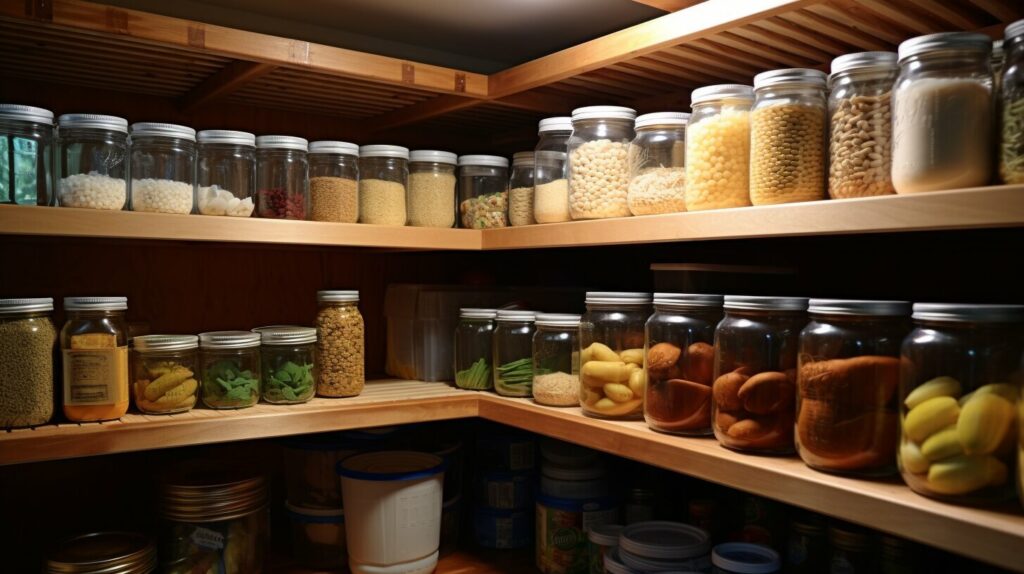
“During emergencies, access to food and water may be limited, making it crucial to have an ample supply stored in advance.”
Developing Survival Skills
In times of emergencies, having basic survival skills can make a huge difference in ensuring your safety and that of your loved ones. Here are some essential survival skills you should consider learning:
- First Aid: Knowing how to administer basic first aid can prove invaluable during emergencies. Be sure to learn how to apply a tourniquet, stop bleeding, and perform CPR.
- Self-Defense: Situational awareness is key when it comes to self-defense. Learning basic moves and techniques can help you protect yourself and your family.
- Fire-Starting: Fire can provide warmth, light, and even a means of cooking food. Learning how to start a fire without matches or a lighter is a valuable skill.
- Navigation: Knowing how to use a map and compass can help you find your way during emergencies. If you’re lost, being able to navigate your way back to safety can be a lifesaver.
By developing these skills, you can increase your chances of survival during emergencies. Consider taking classes, reading books, or watching instructional videos to learn more.

Remember, being prepared is the key to surviving emergencies. In the next section, we will discuss the importance of preparing bug out bags.
Preparing Bug Out Bags
When it comes to emergencies, having a bug out bag can make all the difference. These bags contain essential items that can help you survive if you need to evacuate quickly. It’s important to create a bag for each member of your household and customize it to fit their unique needs.
So, what should you include in your bug out bags? First and foremost, make sure you have enough emergency supplies to last at least three days. This includes food, water, and medical supplies such as a first aid kit and any necessary medications. It’s also important to have a change of clothes, personal hygiene products, and important documents such as passports and identification.
| Emergency Supplies Checklist: | Personal Items Checklist: |
|---|---|
|
|
Once you have assembled your bug out bags, make sure to keep them in a readily accessible location. It’s also important to check and replace items in your bags every six months to ensure they are up-to-date and in good condition. Remember, having a bug out bag can provide peace of mind and can make a world of difference in an emergency situation.
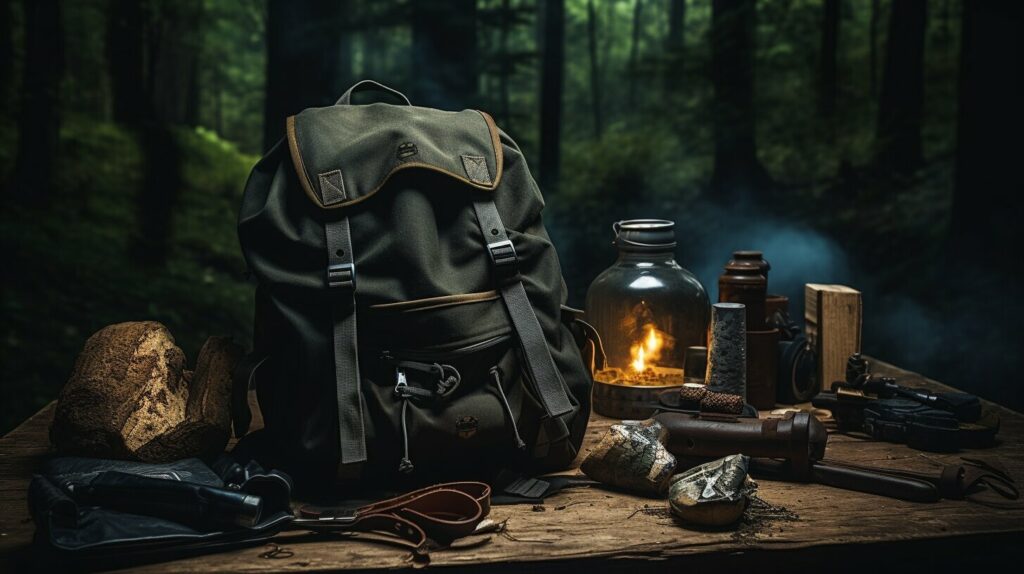
Safeguarding Your Home
When it comes to disaster readiness, one of the most important steps you can take is safeguarding your home. By making a few simple improvements to your property, you could potentially save yourself and your family from harm. Here are some emergency preparedness tips to help you get started:
Secure Windows and Doors
Make sure all windows and doors are properly secured and reinforced. Install sturdy deadbolts on all doors, and consider adding metal bars to ground-level windows. You may also want to install shatter-resistant film on windows, which can reduce the risk of flying glass during a storm.
Reinforce Structures
If you live in an area prone to earthquakes, reinforce your home’s foundation and attach any unsecured fixtures, such as bookcases and cabinets, to the wall. If you live in a hurricane-prone area, consider installing hurricane shutters or impact-resistant windows to protect your home from high winds and flying debris.
Install Smoke and Carbon Monoxide Detectors
Make sure your home is equipped with working smoke and carbon monoxide detectors. Test them regularly and replace the batteries at least once a year. Consider installing a smart detector that can alert you and emergency services in the event of a fire or carbon monoxide leak.
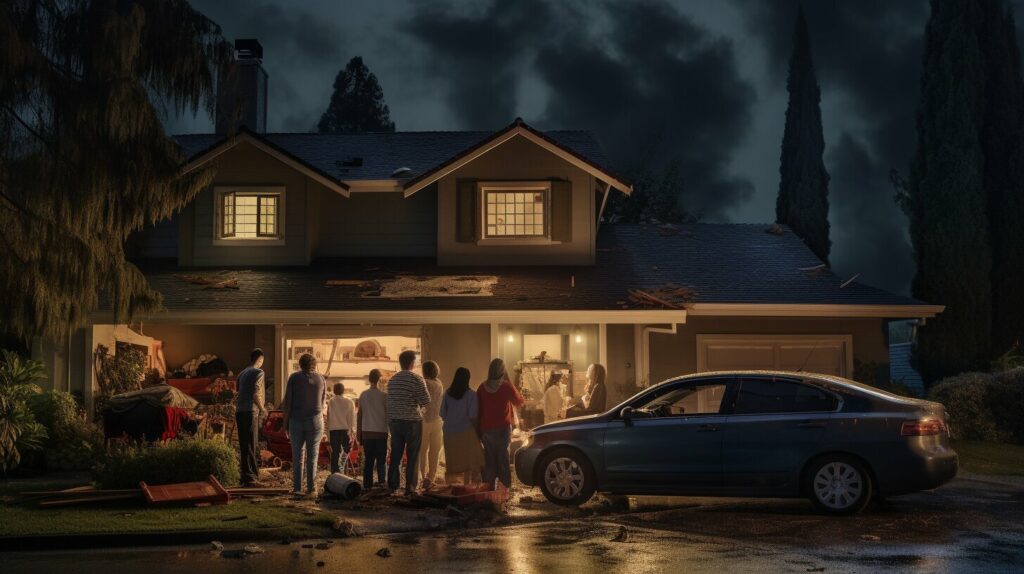
By taking these simple steps, you can significantly increase your home’s safety and disaster readiness. Remember, preparing for emergencies is not just about stockpiling supplies and creating escape plans – it’s also about protecting your home and loved ones from harm.
Conclusion
In today’s unpredictable world, being prepared for emergencies is more critical than ever. By taking some simple steps, you can ensure the safety and survival of your loved ones during unexpected events.
Prepping for emergencies should not be taken lightly; it requires commitment and dedication. However, the rewards of being adequately prepared are immeasurable.
Take Action Now
You don’t have to do everything at once, but it’s essential to get started. Start by assessing the risks in your area and make a list of the potential emergencies you may face.
Once you have identified the potential threats, develop an emergency plan, and gather the necessary supplies. Building an emergency kit and stocking up on food and water are crucial steps you cannot afford to skip.
Stay Informed
Stay up-to-date on the latest emergency preparedness tips and strategies by following reliable sources of information on social media and other platforms. Be sure to pay attention to local news and weather updates as well.
With adequate preparation, you can face any emergency with confidence and peace of mind. Don’t wait until it’s too late; start prepping for emergencies today.
FAQ
Q: Why is prepping for emergencies important?
A: Prepping for emergencies is important because it helps you be prepared for unexpected situations that could arise, such as natural disasters, power outages, or other emergencies. Being prepared can save lives and minimize the impact of these events.
Q: What are some essential tips for emergency preparedness?
A: Some essential tips for emergency preparedness include creating an emergency plan, building an emergency kit, stocking up on food and water, developing survival skills, preparing bug out bags, and safeguarding your home. These steps will help you be ready for different types of emergencies.
Q: How do I create an emergency plan?
A: To create an emergency plan, start by identifying potential risks in your area, such as earthquakes, floods, or severe storms. Determine communication strategies, evacuation routes, and designated meeting points for your household. Practice your plan regularly to ensure everyone knows what to do in an emergency.
Q: What should I include in my emergency kit?
A: Your emergency kit should include essential items such as first aid supplies, non-perishable food, water, flashlights, batteries, a battery-powered radio, a multi-tool, and a whistle. Consider including personal items like medications, extra clothing, and copies of important documents as well.
Q: How often should I rotate my emergency food and water supplies?
A: It is recommended to check and rotate your emergency food and water supplies every six months. This ensures that the items remain fresh and usable when needed. Be sure to also check expiration dates on food and replace any expired items.
Q: What survival skills should I focus on?
A: Some essential survival skills to focus on include first aid, self-defense, fire-starting, and navigation. These skills can be valuable in emergency situations and increase your chances of survival and self-sufficiency.
Q: What should I include in a bug out bag?
A: A bug out bag should contain items like clothing, a sleeping bag, personal hygiene products, a multi-tool, a flashlight, a portable phone charger, copies of important documents, and some cash. Customize your bag based on the needs of each member of your household.
Q: How can I safeguard my home from potential disasters?
A: To safeguard your home, you can take steps such as securing windows and doors, reinforcing structures, installing smoke and carbon monoxide detectors, and clearing any potential fire hazards around your property. These measures can help protect your home and family in emergencies.
